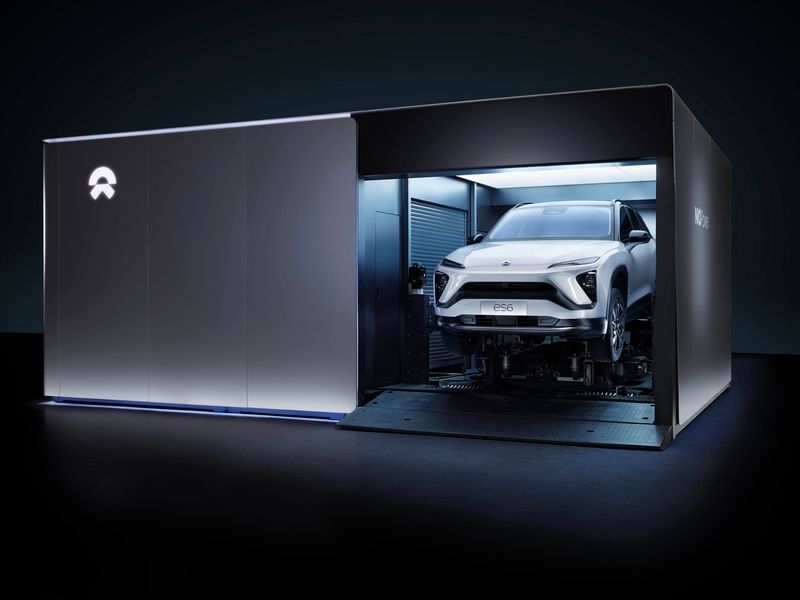
SHANGHAI – Battery swap sites are costly to build and operate. Automakers are still wary of battery swapping to charge electric vehicles after Tesla ditched it in the U.S. in 2013.
Yet in China, battery swapping has gained traction with the participation of a diverse range of domestic companies.
Because of varying land prices in Chinese cities, a battery swap station requires an investment of an estimated 3 million yuan ($470,000) to 5 million yuan.
Because of the high costs, most Chinese EV makers have been reluctant to embrace battery swaps.
Until 2019, state-owned BAIC Motor Co. and EV startup Nio were the only two automakers offering battery swap services for customers.
Market dynamics are playing a bigger role. EV sales hit a record 1.115 million in 2020, and surged 280 percent to 615,000 in the first four months of 2021, accounting for 7 percent of China’s new-vehicle deliveries, up from 3.5 percent of all industry volume in 2018
Tesla became the largest EV maker last year shortly after it launched local output. Nio — which had 117 battery swap stations in operation by the end of 2020, the largest among EV makers in China — saw sales more than double to nearly 44,000.
Competition from Tesla and Nio’s success in gaining customers with battery swap services have prompted other Chinese EV makers to take bold steps.
In September, Zhejiang Geely Holding Group, China’s largest private carmaker, unveiled its first battery charging station in the southwest China municipality of Chongqing. The company plans to build 35 such facilities in the city.
While Geely is constructing battery swap stations on its own, other Chinese automakers have opted to build facilities along with domestic companies to share costs.
In September, state-owned Changan Automobile Co. launched its first battery swap station in Chongqing along with a consortium of other major domestic companies.
The partner companies include CATL, China’s largest EV battery maker; Aulton New Energy Vehicle Technology Co., a Shanghai-based battery swap station operator; and State Grid, a state-owned power grid operator.
In March, SAIC Motor Corp., another major state-owned automaker, also teamed up with Aulton to kick off operation of the first battery swap station for its EVs.
Aiways, an EV startup, tapped Blue Part Smart Energy, an EV charging facility operator under BAIC, in April to offer battery swap services.
For years, government officials in China have racked their brains on how to accelerate construction of battery swap facilities to boost EV demand in China.
They seem to have finally come up with a plan.
The central government, as reported by China’s state-owned Central Television Station this week, will select a batch of provinces and municipalities later this year for a pilot program to promote battery swaps. Details of the program have not been disclosed.
At the same, encouraged by the government, more large state-owned companies have jumped on the bandwagon to add battery swap sites.
The latest is Sinopec, a leading state-owned petroleum and petrochemical product supplier. After launching a battery swap station in Beijing in April, the company said it plans to construct 5,000 similar stations across China over the next five years.
While an increase of 81 percent from a year earlier, only 555 battery swap stations were installed and operating in China at the end of 2020, according to China’s ministry of commerce.
But the number will continue to grow at a fast pace with a slew of domestic Chinese companies piling in to further build out infrastructure.

